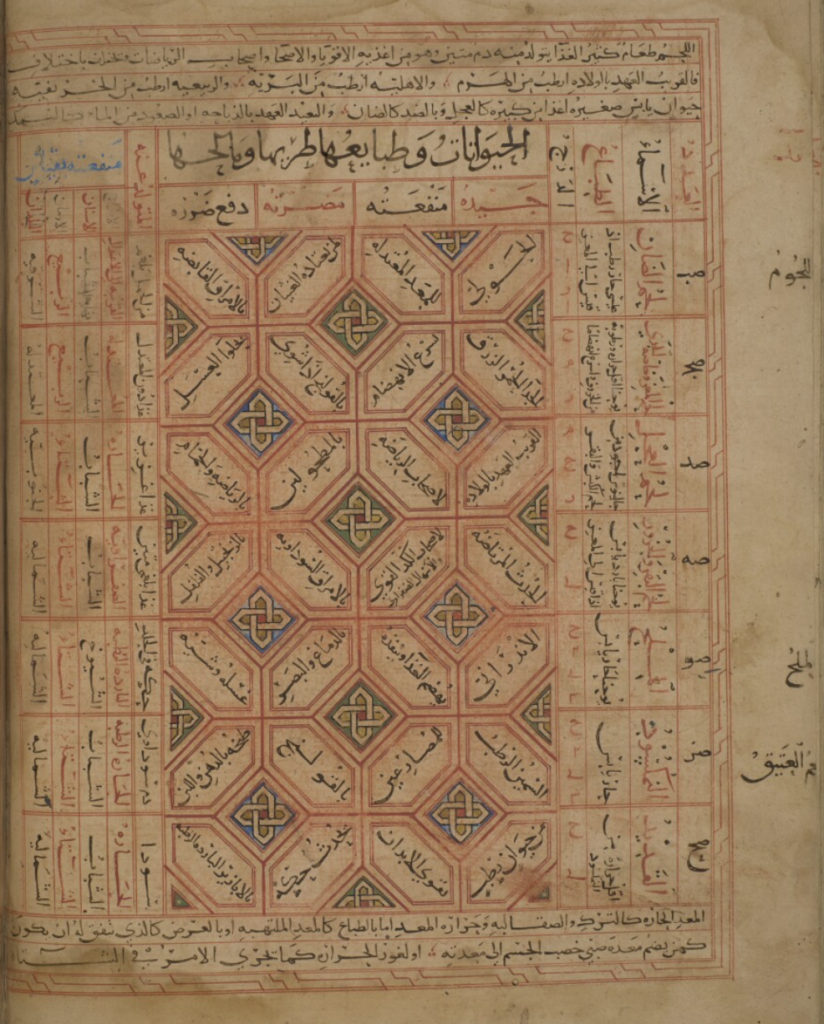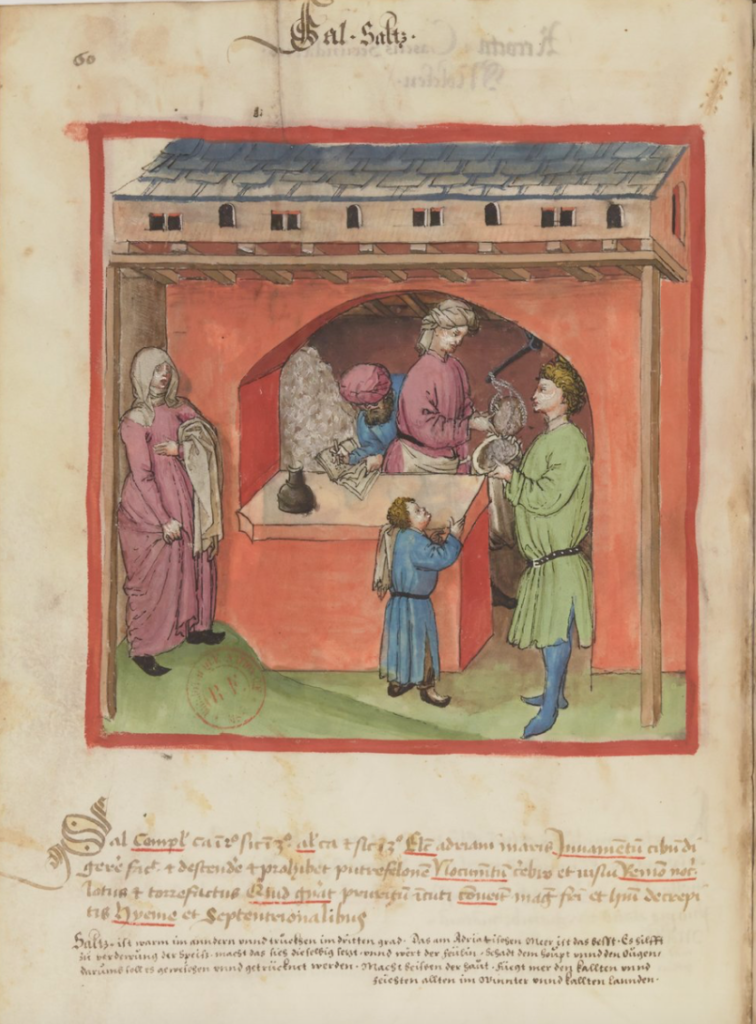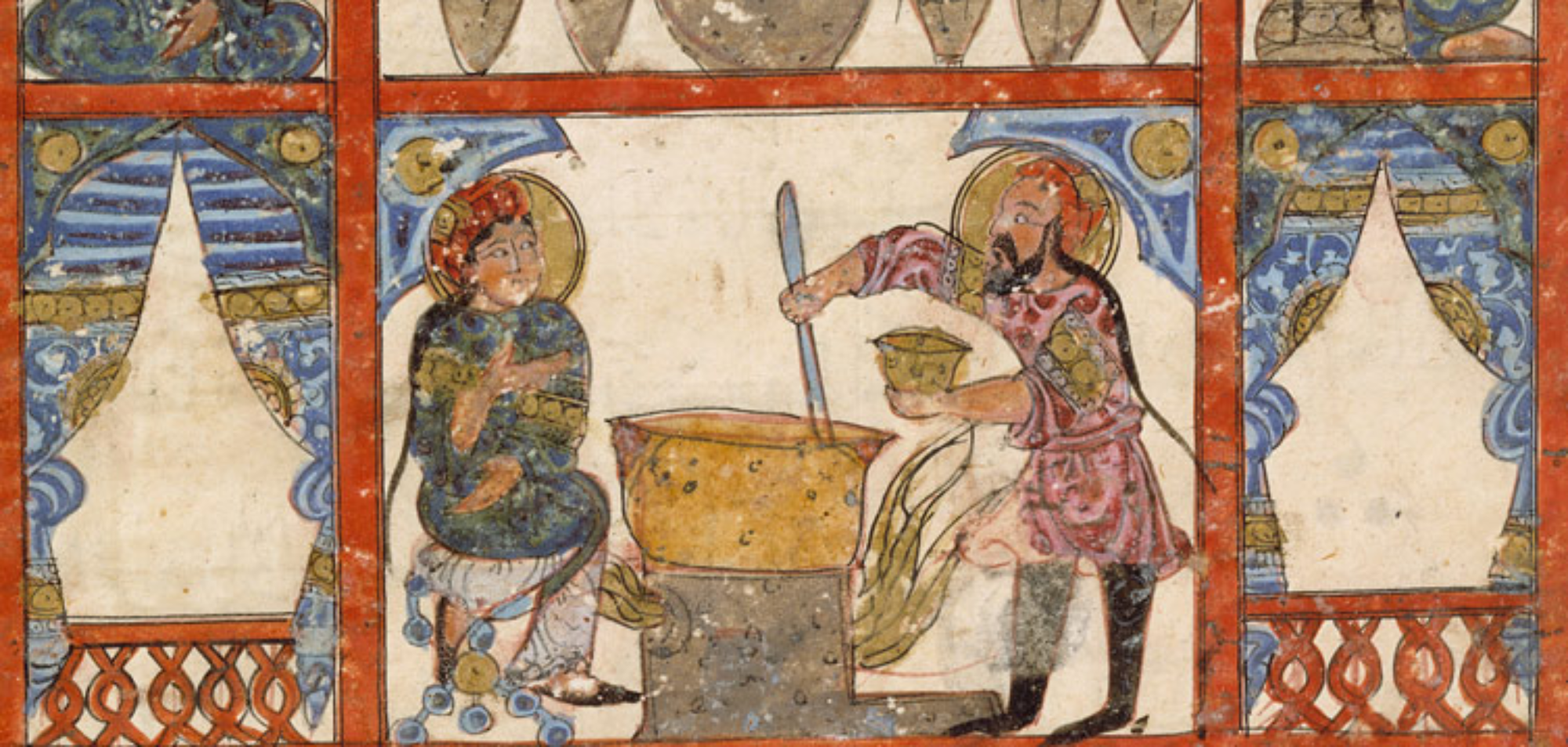Both sea and rock salt were known in Antiquity. It was already quarried in Ancient Egypt and the Romans started producing salt on a very large scale. It was especially important for preserving food but salt was also used in cooking; in Greek times already it was sprinkled on meat roasts and fish, whereas there are references to various kinds of seasoned salts, added with, for instance, thyme or cumin. However, the most common salting agent was garum. According to the botanist Dioscorides, the best salt was white, free of stones and dirt, dense and smooth. He particularly recommended salt quarried in Libya, Cyprus and Sicily, and that from marshlands.
Pre-Islamic Arabs already used salt to season their food, but it also played an important role in some of their rites, as in an oath-swearing underpinning alliances. Though primarily referring to table salt (sodium chloride), the Arabic word milḥ (ملح) can also denote other salt-like substances, such as natron. The literature distinguishes between sea salt (ملح بحري, milḥ baḥrī ) and rock salt (ملح برّي, milḥ barrī , i.e. ‘soil salt’). Salt was quarried in various areas (e.g. Persia) or acquired from salt marshes. A premium type or rock salt was known as milḥ darānī, or andarānī, which was considered the purest, i.e. devoid of any dust or rock.
Salt is one of the most used spices and condiments in mediaeval Arab cuisine, both as a seasoning and to preserve various kinds of foods, as well as in pickling. Besides the salting of meat and fish, the sources also include recipes for salted fruit, especially lemons. Some authors recommended adding salt at the end since it can slow down the cooking time of other ingredients. The modern pair of salt and pepper co-occur in half of the recipes requiring salt (especially with fish), and is often also used in dishes including almonds or cassia. Meat was washed with hot water and salt before cooking it. Similarly, aubergine was soaked in salt and water to remove the bitterness. One of the popular dishes in the early Abbasid tradition were mā’ wa milḥ (‘water and salt’) stews, which involved meat being cooked in a broth of water and salt.
The 12th-century physician al-Isrā’ilī recommended using salt to balance food (e.g. fish), when food has no flavour (e.g. gourd); to dry out excessively moist food; and to remove greasiness and bad odours (e.g. fatty and greasy meats); and to reduce sourness.
As a condiment, salt was often mixed and toasted with other spices (e.g. coriander, sesame, nigella, hemp seeds, poppy seeds, cumin, fennel seeds, asafoetida leaves and anise) into milḥ muṭayyab (ملح مطيّب, ‘seasoned salt’). It could also be dyed, for instance, with sumac or saffron, or even indigo.
Salt was put to some unusual use in agriculture; for instance, it was said that to extend the life of a pear tree, it should be covered with salt, which would prevent the fruit from rotting.
Salt was a vector of social and religious connotations as well To the ancient Greeks already sharing salt signified the sharing of a meal but, by extension, hospitality and the establishment of friendship ties. In Arabic, the saying ‘there is bread and salt between us’ (بيننا خبز وملح) still has this meaning.
Various sayings of the Prophet (hadith) commend the use of salt: it is required to make food flavoursome (لا يَصْلُحُ الطعام إلا بالمِلح), and is one of the four divine blessings sent down from the heavens, together with iron, fire and water (أَنزَلَ أربعَ بَرَكاتٍ من السماء إلى الأرض: الحديد والنار والماء والملح). The Prophet is even said to have advised making salt the basis of food because it cures seventy-two illnesses, among them, leprosy, and aches in the tooth, throat and belly.
In Islamic medicine, salt was considered hot and dry in the second degree, with bitter, astringent and dissolvent properties, whereas darānī salt expels wind. Al-Isrā’ilī said salt was effective against malignant ulcers, while Ibn Sīnā recommended it as an antidote for scorpion bites; and to counter the ill effects of opium.


